About the Congregation
The Congregation of the Poor Handmaids of Jesus Christ (PHJC) is a religious congregation for women within the Roman Catholic Church. It was founded by a poor woman, Mary Katherine Kasper, in 1851 in Germany. The Congregation won papal approval in 1872 and is now present in nine countries (Brazil, England, Germany, India, Kenya, Mexico, Netherlands, Nigeria and United States of America) in four continents. There are about 800 Sisters worldwide directed by the international Generalate.
The time of the foundation was a very difficult time in Germany. There were many small kingdoms, no central German state. Fifty years before there was war all over Europe, and in 1803, all religious communities all over Germany were closed, religious life seemed finished. At the same time, there was extreme poverty especially in the rural areas. There was no health care for the poor, few schools gave chances to the children. Few parishes existed.
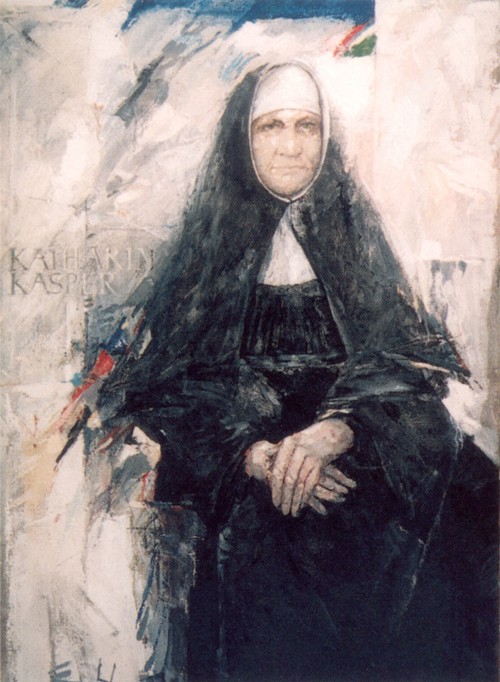
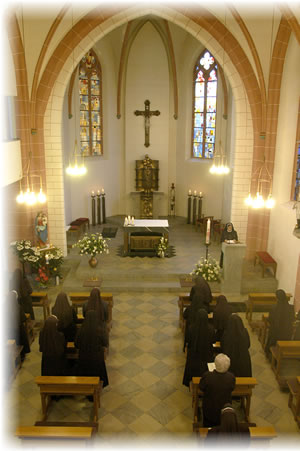
Motherhouse church in Dernbach, Germany
Mary Katherine Kasper was born on May 26, 1820, in Dernbach, as the 7th child of a poor farmer. She was sickly and could not go to school for more than about two years in all. But she had great love for God and for her neighbours. This love urged her to help others as much as she could. Soon she cared for the sick in her own village, and her example encouraged other girls to do the same. So a group of young women formed, and in 1842, she started to build a little house in order to be able to meet and plan activities. By that time, her father had died, the family home had been sold, her brothers had left the village, and she lived with her mother in one rented room.
After many difficulties, she won the approval of Bishop Peter Joseph Blum of the Limburg Diocese, and he accepted her hand-written rule for the pious society of women. In 1851, he finally accepted her request to form a religious congregation of women with simple public vows, with the name “Poor Handmaids of Jesus Christ”. In choosing this name, Mary Katherine Kasper – who became the first superior of the congregation – expressed her understanding and goal for the community. Mary, the Mother of God, had called herself a handmaid to express her willingness to do God’s will in all things and under all circumstances. In the same way, Mary Katherine wanted to do God’s will in her time.
As the needs of the poor were many, the Sisters soon did many things. They cared for the poor, the sick and the old in their homes, but they also founded hospitals and homes. They educated children in kindergardens, schools, orphanages. They looked after the mentally and the physically handicapped and tried to give them chances for independence. The numbers kept growing and the requests for Sisters came from all over Germany and beyond. The Netherlands were the first foreign country, soon followed by the United States, England, Bohemia. Mother Mary Katherine guided the congregation until her death on February 2, 1898, as General Superior. By that time, the congregation had gone through times of persecution (from 1870 to 1885 religious were not allowed to work in schools in Germany) and wars (1866, 1870-71) in which Sisters nursed soldiers on the battle fields.
The II. Vatican Council of 1962-65 brought the congregation into contact with the global church and the idea of foreign missions.
Young Indian girls were accepted for formation in Germany, and in 1970, the first house in India was opened.
The girls had come from the Christian south, Kerala, but the house was
opened in Madyah Pradesh, in the Hindu-dominated centre of India. 2014,
there are about 200 Indian Sisters in two
provinces, with more than 20 houses.
After that, the Mexican mission started from the American Province, and houses were opened with international groups in Brazil (1992) and in Kenya (2000).
In 2001, Nigerian women started coming to Germany for formation, and in 2006, the first mission was opened in Imo State.
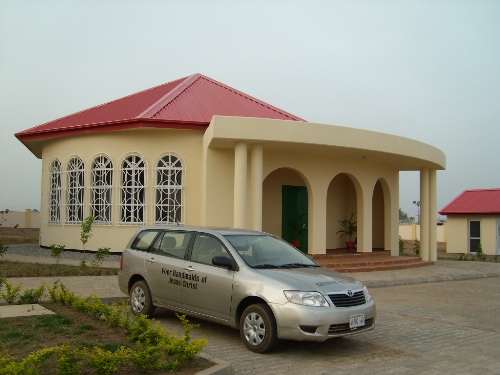
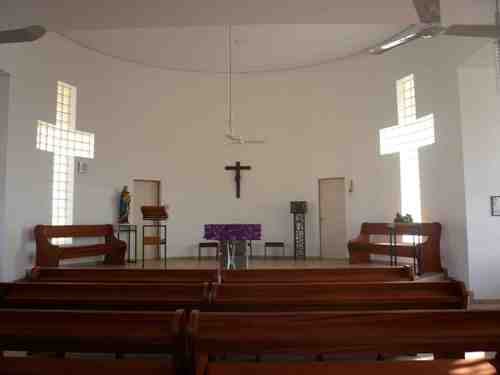
Congregation chapel in Garam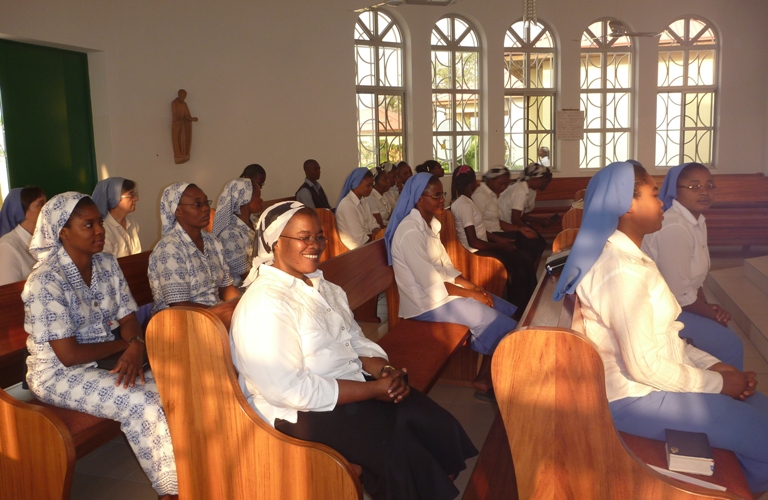
On April 16, 1978, Pope Paul VI. beatified Mary Katherine Kasper, showing forth her example for all Christians as a valid way of Christian living.
With great joy the sisters all over the world heard that on October 14, 2018, Pope Francis will canonize our foundress, Mary Katherine Kasper, in Rome. Many of the sisters are preparing to participate in this celebration, just 40 years after the beatification by Pope Paul VI who himself will also be canonized on the same day in Rome. Canonization stresses the fact that this simple woman is a valuable and challenging example for women in the global church and that the charism of the congregation is as fitting for the modern world as it was in the 19th century: The times have changed since 1851, but the charism of the congregation remained the same: serving God in the people around us. It is the will of God that all human beings be saved, so we can reach out to all and help them lead a good life, feeling the love of God and being happy in this love.
The shrine under the main altar of the Motherhouse church in Dernbach, Germany, shows how her charism expresses itself at all times: like Christ, she and her Sisters …
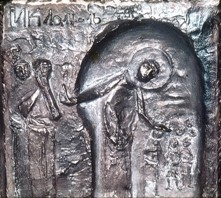
… care for the sick,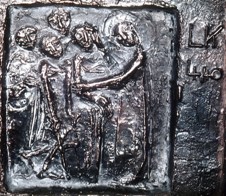
educate the children and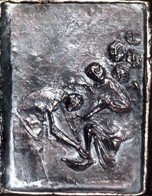
wash each others feet in community life.
